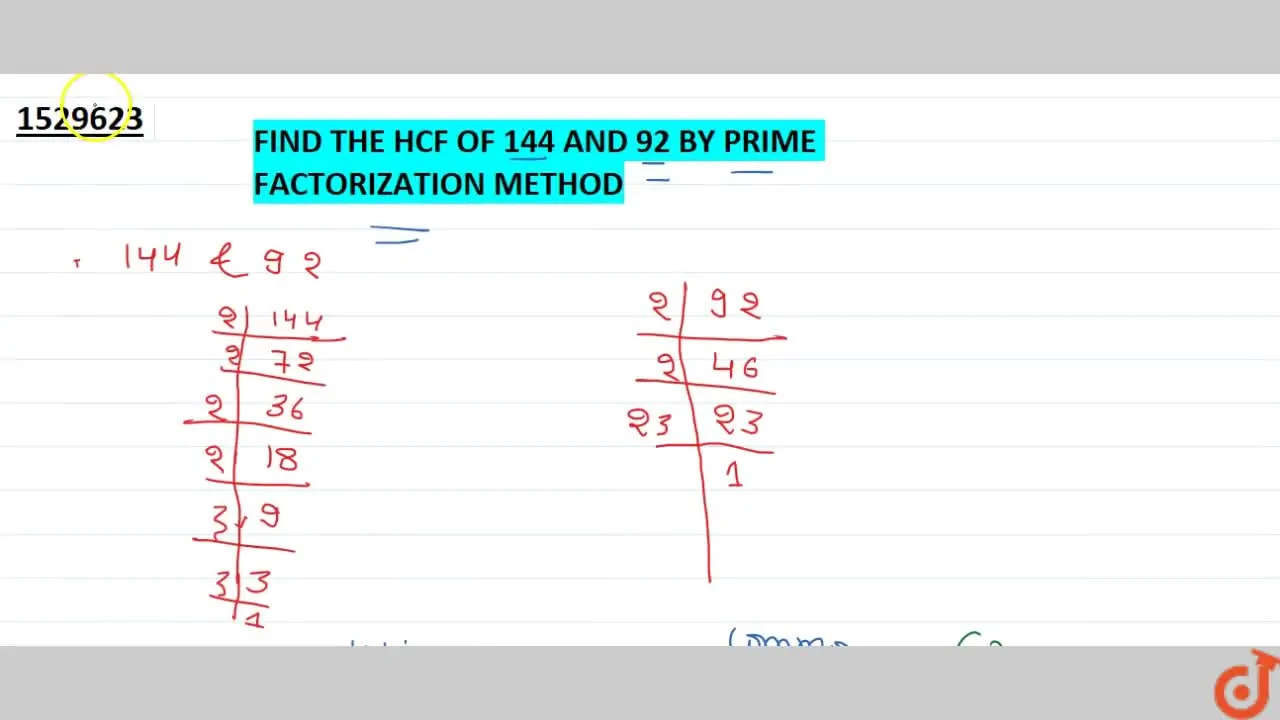Which of the following statements are true? If a number is divisible by 3, it must be divisible by 9. If a number is divisible by 9, it must be divisible by 3. If a number is divisible by 4, it must be divisible by 8. If a number is divisible by 8, it must be divisible by 4. If a number is divisible by 18, if it is divisible by both 3 and 6. If a number is divisible by both 9 and 10, it must be divisible by 90. If a number exactly divides the sum of two numbers, it must exactly divide the numbers separately. If a number divides three numbers exactly, it must divide their sum exactly. If two numbers are co-prime, at least one of them must be a prime number. The sum of two consecutive odd numbers is always divisible by 4.
Step by step video & image solution for Which of the following statements are true? If a number is divisible by 3, it must be divisible by 9. If a number is divisible by 9, it must be divisible by 3. If a number is divisible by 4, it must be divisible by 8. If a number is divisible by 8, it must be divisible by 4. If a number is divisible by 18, if it is divisible by both 3 and 6. If a number is divisible by both 9 and 10, it must be divisible by 90. If a number exactly divides the sum of two numbers, it must exactly divide the numbers separately. If a number divides three numbers exactly, it must divide their sum exactly. If two numbers are co-prime, at least one of them must be a prime number. The sum of two consecutive odd numbers is always divisible by 4. by Maths experts to help you in doubts & scoring excellent marks in Class 6 exams.
Related Playlists
Similar Questions
Which of the following statements are true?
If a number is divisible by 9, it must be divisible by 3.View SolutionWhich of the following statements are true? (a)If a number is divisible by 3, it must be divisible by 9.
(b)If a number is divisible by 9, it must be divisible by 3.
(c)If a number is divisible by 4, it must be divisible by 8.
(d)If a number is divisible by 8, it must be divisible by 4.
(e)A number is divisible by 18, if it is divisible by both 3 and 6.
(f)If a number is divisible by both 9 and 10, it must be divisible by 90.View SolutionWhich of the following statements are true?
A number is divisible by 18, if it is divisible by both 3 and 6.View SolutionIf a number is divisible by both 11 and 13, then it must be necessarily :
View SolutionIf a number is divisible both by 2 and 3, then it is divisible by 12.
View SolutionIf a number is divisible by 2 and 3, then it is also divisible by 6.
View SolutionA number is divisible by 6 if it is divisible by
View SolutionIf a number is divisible by both 5 and 7, then it must necessarily be divisible by____
View SolutionWrite (T) for true and (F) for false against each of the following statements :
(i) If a number is divisible by 4. it must be divisible by 8 .
(ii) If a number is divisible by 8 . it must be divisible by 4 .
(iii) If a number divides the sum of two number exactly. it must exactly divide the num .bers separately.
(iv) If a number is divisible by both 9 and 10 . it must be divisible by 90.
(v) A number is divisible by 18 if it is divisible by both 3 and 6 .
(vi) If a number is divisible by 3 and 7 . it must be divisible by 21.
(vii) The sum of two consecutive odd number is always divisible by 4 .
(viii) If a number divides two number exactly. it must divide their sum exactly.View SolutionWhich of the following statements are true?(a) If a number is divisible by 3, it must be divisible by 9.(b) If a number is divisible by 9, it must be divisible by 3.(c) A number is divisible by 18, if it is divisible by both 3 and 6.(d) If a number is divisible by 9 and 10 both, then it must be divisible by 90.(e) If two numbers are co-primes, at least one of them must be prime.(f) All numbers which are divisible by 4 must also be divisible by 8.g) All numbers which are divisible by 8 must also be divisible by 4.(h) If a number exactly divides two numbers separately, it must exactly divide their sum.(i) If a number exactly divides the sum of two numbers, it must exactly divide the two numbers separately.
View Solution


